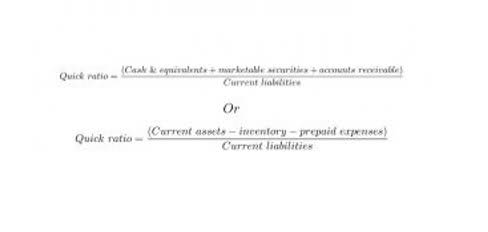
Legal invoicing software is designed to help law firms and legal professionals manage billing and financial tasks efficiently. These tools are generally used by attorneys, paralegals, and firm administrators to ensure accurate billing and financial management. CARET Legal is a good fit for legal professionals seeking legal accounting software with excellent matter management features. It is a great fit for firms handling a large volume of documents every day, especially if you’re using Microsoft 365 or Google Workspace.
Benefits of Using Accounting Software for Lawyers
- Document Management Software keeps your documents (and email) organized, searchable and accessible from anywhere.
- You’re required by law to place retainer fees in a trust account, which these apps don’t do.
- In reviewing numerous solutions, I chose ActionStep for its integrated approach to practice management.
- Accounting software is increasingly being integrated with practice management tools.
Without QuickBooks Online, LeanLaw’s accounting features aren’t enough for legal needs. We recommend TimeSolv or CARET Legal instead because they have better matter management features. These tools often law firm bookkeeping include customizable reporting, budget tracking, and scenario analysis features. By leveraging these capabilities, firms can make more informed financial decisions, allocate resources more effectively, and plan for future growth. Some accounting software helps prepare your taxes, or if your law firm hires an accountant to prepare your taxes, legal accounting software helps keep accurate records that are essential at tax time. Moreover, many online accounting tools, such as Clio Accounting, have options to generate useful online reports for tax filings in just a few clicks.
- We awarded a higher ease-of-use score to all-in-one software that doesn’t require an accounting integration.
- Whether you specialize in a particular field of law or handle different types of cases, you bring your experience, skill, and legal knowledge to every case.
- However, our focus of evaluation is not on the price but on the flexibility that every provider gives to potential clients.
- In most cases, this means cloud-based legal accounting software that integrates with your existing tech stack.
- © 2024 Website design for accountants designed by Build Your Firm, providers of accounting marketing services.
Use financial data to make better business decisions
While QuickBooks Online is extremely customizable, it has no legal-specific features that law firms need, such as trust accounting, legal billing, and legal-specific reports. This is why we recommend integrating it with LeanLaw, which is ideal for law firms with up to 30 attorneys. LeanLaw took a hit in practice management features only because its matter management features are limited to the financial aspect of matter management. You can add time entries and expenses to client matters, but there’s no feature where you can manage non-financial information. It also got docked for ease of use because it has limited support channels and requires accounting software integration.
Integrations

Ditch your outdated templates and create professional invoices that capture every detail of billable work. Using my experience with legal billing software of all types, I tested and compared several of the top legal invoicing software available. From there, I compiled my results into detailed reviews to help you find the best software for your needs. FreshBooks provides the accounting support you need and takes care of the data entry and migration from QuickBooks Online, Word, or any other accounting systems or bookkeeping software. what are retained earnings The intuitive interface is simple to use and has no confusing financial jargon.
- Book some time for a consultation, and our support staff is happy to give advise you in the best direction to go.
- However, while PCLaw is a powerful solution, it’s complicated legal accounting software.
- Cloud-based software is hosted on external servers and accessed via the internet, offering a more modern approach to data management.
- Compared to other options on this list, its prices are on the higher side, and smaller law firms may find it expensive.
- All accounts include a free login for your accountant, unlimited training, free data migration, unlimited file storage, and an unconditional 90-day money-back guarantee.
Frequently Asked Questions – Law Firm Accounting Software
Both come with rich accounting and a strong set of financial and billing reports. Tabs3 has been around a long time, and has a reputation for being a robust accounting platform, backed by excellent user support. Server-based software is installed and runs on in-house servers, and users access it through the firm’s internal network.
Sort expenses, and see where your money is best spent
Key integrations to look for include practice management software, document management systems, and billing platforms. These integrations can streamline workflows, reduce data entry errors, and provide a more cohesive view of your firm’s financial health. Additionally, integration with popular accounting software like QuickBooks or Xero can be beneficial for more advanced financial management. Accounting for law firms has unique requirements for trust accounting, billing, and more.


It took a hit in ease of use because of the need to integrate with Xero. Law firms require accounting software because they deal with intricate financial activities that are unique to the legal profession. Unfortunately, these complexities are not appropriately addressed by general accounting software. There are so many that it can be daunting and outright confusing (especially given the mix and overlap of some law firm accounting software and law practice management software). Yes, law firm accounting software can typically handle UTBMS legal billing codes. This feature allows firms https://www.bookstime.com/ to categorize legal tasks and expenses, ensuring detailed financial tracking, accurate invoicing, and compliance with industry standards.